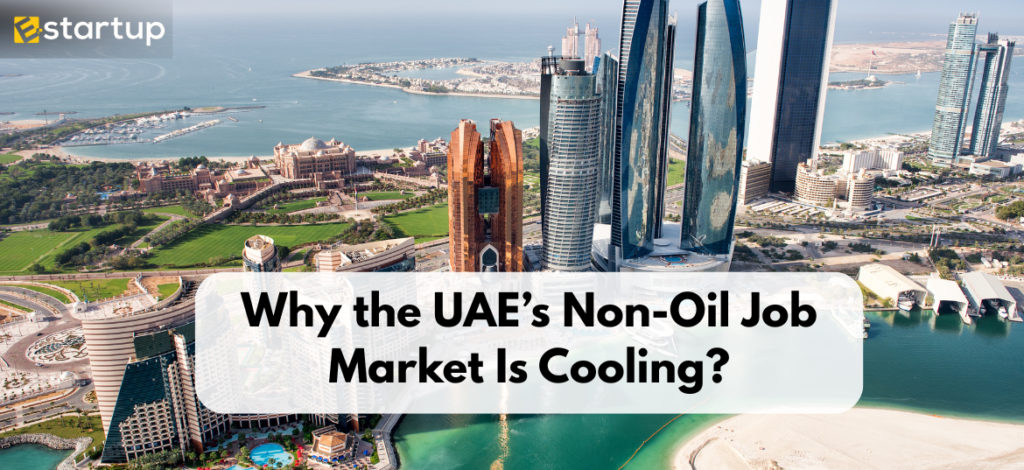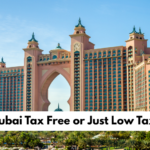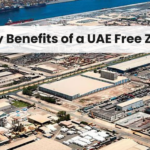Introduction
2025 is shaping up to be an interesting year for the UAE. The UAE ‘s Non-oil job market, encompassing everything from real estate to tourism and logistics, has been a reliable source of jobs and growth for years. However, signs of a slowdown in hiring are now starting to appear.
At the same time, Abu Dhabi is making significant strides, driving robust trade growth and investment. While some parts of the economy are cooling, others are growing, and that’s what makes the UAE’s current economic story so fascinating.
Non-Oil Sector: Still Thriving, But Pacing on Employment
The UAE non-oil economy is wide and lively ranging from hospitality, retailing, construction, and logistics to healthcare, education, and professional services. These sectors have been the bedrock of private sector jobs for years, particularly in Dubai, Sharjah, and Ajman. During 2023 and 2024,we saw strong hiring trends as businesses bounced back from the COVID-19 slowdown.
But in 2025, something is off. Businesses are still busy. Projects are still ongoing. Consumers are still buying. But when it comes to generating new employment opportunities, the rate is apparently slower.
What’s Causing the Slowdown?
- Post-Pandemic Workforce
In the years of recovery (2021–2023), most firms over-hired to make up for lost time with backlog demand. Hotel businesses reinstated complete teams, retail chains expanded new outlets, and logistics companies expanded to meet more e-commerce volume.
In 2025 ,businesses are entering a “stabilization phase”, focusing on maintaining current productivity levels rather than adding new employees.They’re trimming excess roles, teams, and getting leaner.
- Tech Replacing Traditional Roles
Across the UAE, businesses are rapidly adopting digital tools and automation to streamline operations. Technologies like:
- Self-service kiosks in hotels and restaurants
- AI-powered customer support
- Automated billing, scheduling, and logistics tracking
- Robotic warehousing systems
These technologies are inexpensive and scalable. Businesses now prefer to not have to employ 10 new staff members, but rather a business can invest in a software that handles the same load of work.
This change is producing high-skilled technology jobs, but it’s also lowering the need for repetitive, hand-done, or entry-level jobs, particularly in admin, sales support, and operations.
- Cost of Doing Business is Rising
UAE companies are also getting choosier about hiring more staff due to increasing operational expenses like:
- Higher rents in prime commercial areas
- Higher utility bills, especially electricity and cooling during summer seasons
- Visa processing and renewals fees on employees, which SMEs find costly
- Corporate tax planning and regulatory burdens under new UAE tax regulations
For most small and medium-sized companies, bringing on a new worker isn’t just a matter of wages, it’s a question of a whole bundle of fixed expenses. So instead of making long-term commitments, companies are turning more to outsourcing, freelancers, and automation.
How Abu Dhabi is becoming the center of non-oil economic momentum.
While hiring slows in other emirates, Abu Dhabi is booming, especially in trade and industrial development.
The latest data from Abu Dhabi’s Department of Economic Development (ADDED) shows:
- A 143% surge in real estate transactions in the first half of 2025
- Strong growth in non-oil exports, particularly in metals, chemicals, and machinery
- A sharp increase in foreign direct investment (FDI)
What’s Driving Abu Dhabi’s Growth?
- World-class infrastructure like Khalifa Port and KIZAD
- Business-friendly policies including 100% foreign ownership and tax benefits
- Trade deals through the UAE’s CEPA agreements with India, China, and Europe
- Focus on industry and sustainability from green hydrogen to high-tech manufacturing
Emerging Sectors in Abu Dhabi
If you’re wondering where to invest or expand in 2025, keep your eyes on these sectors:
1. Real Estate
Residential, commercial, and industrial properties are all in high demand. Investors are targeting long-term rental yields and capital appreciation as infrastructure projects grow.
To know about real estate business read our previous blog.
2. Manufacturing
Abu Dhabi’s Industrial Strategy is favoring clean tech, food processing, defense, and pharmaceuticals. Local manufacturing is increasing, particularly in smart factories.
3. Logistics & Trade
With new warehousing clusters, AI-facilitated customs clearance, and smart transport infrastructure, Abu Dhabi is becoming a regional logistics hub.
What This Shift Means
Whether you’re an investor, a business owner, or a professional looking for your next opportunity
🔹 For Investors:
- Now is the time to diversify into non-oil trade and infrastructure.
- Look beyond short-term returns and focus on emerging sectors like clean energy, logistics tech, and industrial automation.
🔹 For Business Owners:
- Consider setting up or expanding operations in Abu Dhabi, especially in free zones like KIZAD or Masdar City.
- Take advantage of customs benefits, reduced trade tariffs, and streamlined business licensing.
🔹 For Job Seekers:
- Fewer openings in traditional roles doesn’t mean fewer opportunities.
- Upskill in areas like supply chain tech, AI applications, trade compliance, and project management.
- Look for jobs with multinational firms based in Abu Dhabi’s industrial and logistics zones.
Conclusion
While job growth in the non-oil sector has slowed slightly, the UAE’s overall economic outlook remains strong and forward-focused. The change in recruitment patterns is not reflective of weakness but instead a strategic adjustment as companies prioritize efficiency, technology upgrade, and sustainable long-termism.
Leading the way in this development is Abu Dhabi, positioning itself as a core contributor in non-oil growth through solid trade performance, industrialization, and infrastructure development. Its focus on innovation and key sectors is placing it at the center of the UAE’s diversification efforts.
Whether investors, entrepreneurs, or professionals this represents a timely moment to get aligned with emerging growth corridors and sectors that represent the UAE’s future economic priorities. Those who adapt to this evolving landscape will be well-positioned to benefit from the next phase of growth, especially in Abu Dhabi’s dynamic and expanding economy.
Ready to Grow in Abu Dhabi? Let Us Help You Get Started
At e-startup.ae, we specialize in helping businesses, investors, and professionals establish a presence in the UAE’s most dynamic markets. From choosing the right free zone to navigating licensing and compliance, our experts simplify the entire setup process
References
FAQs
1.Why is the UAE’s non-oil job market slowing in 2025?
The slowdown is primarily the result of post-pandemic stabilization, increasing business expenses, and enhanced automation. Firms are emphasizing efficiency and retreating from the ferocious recruitment observed in the recovery years (2021–2024).
- Is the UAE economy weakening due to the hiring slowdown?
No, the hiring slowdown does not indicate overall economic frailty. Instead, the economy is becoming more strategic, prioritizing productivity, digitalization, and long-term viability.
- Where are reduced hiring impacts greatest?
Conventional industries like hospitality, retail, logistics, and administration are experiencing lower hiring—particularly for entry-level and repetitive positions—because of automation and budget-cutting.
- Why is Abu Dhabi recording growth in trade and investment while employment growth is slowing elsewhere?
Abu Dhabi has been pursuing focused initiatives like industrial diversification, CEPA trade pacts, 100% foreign ownership, and infrastructure investment. These are now starting to bear robust outcomes in trade, FDI, and exports.
- Which are the highest-performing sectors in Abu Dhabi in 2025?
The highest growth sectors are:
- Real Estate (residential, industrial)
- Clean Tech & Manufacturing
- Logistics & Supply Chain
- Green Energy & Hydrogen
- Pharmaceuticals and Defense
- Is now a good time to invest in Abu Dhabi’s non-oil economy?
Yes. With robust government support, expanding free zones (like KIZAD and Masdar City), and a rising demand in trade and industry, Abu Dhabi presents strong investment potential in 2025.
- How is technology impacting job creation in the UAE?
Automation, AI, and digital platforms are diminishing the demand for repetitive work, yet they are also generating demand for high-skilled technical jobs in supply chain tech, fintech, cybersecurity, and data analysis.
- How can job seekers prepare for this transformation in the UAE market?
By reskilling in fields such as AI applications, project management, trade compliance, and logistics technology. Multinational firms in Abu Dhabi industrial parks are actively recruiting for these positions.
- Are SMEs in the UAE hesitating to recruit due to taxes and operating expenses?
Yes, most SMEs are hesitant to recruit due to increasing office rent, visa renewal, electricity, and new corporate tax expenses. Most opt to outsource or automate rather than commit to long-term recruitment.
- What assistance is there to establish a business in Abu Dhabi?
Abu Dhabi provides various incentives such as:
- Free zone advantages (e.g., 100% foreign ownership)
- Lower trade tariffs
- Easier business licensing
- Customs-free warehousing and intelligent logistics centers access.













